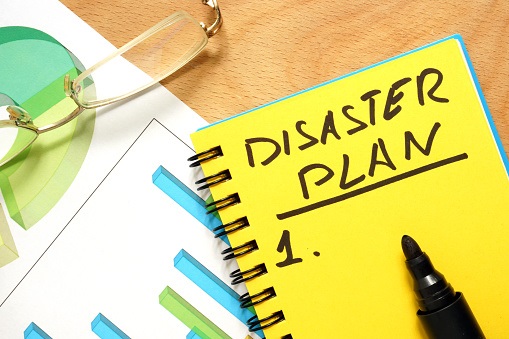The Financial Aftermath of a Natural Disaster


From fires to heatwaves to hurricanes, natural disasters have significant physical, emotional, and financial impacts on thousands of lives every year. For those faced with the financial aftermath of one of these disasters, we’ve collected tips from victims of prior storms, those in the insurance industry, and fellow financial advisors on what to do next. And, for those who have not been affected by the storms, we hope this serves as a guide of preemptive steps to take, should you ever experience your own loss.
Evacuees
Once you are safe, one of the first things to do is contact your homeowner’s insurance provider. Part of your homeowner’s policy covers for loss of use, which can provide for you to live in a home of like kind and quality, or a hotel, while you are away from your home. You may also be reimbursed for living expenses incurred above and beyond your deductible.
For Those Who Have Lost Their Homes
While most homeowners have some sort of insurance coverage, the details and depth and breadth of the coverage varies considerably. Here are some specific recommendations for dealing with the loss of a home.
Secure Housing Quickly
As those who have been displaced look to rebuild their lives, it is likely that housing costs will be high and availability will be scarce. Being proactive about securing housing will afford you the best possibility of finding a place that meets your wants, not just your immediate needs.
Stay On Top of Your Mortgage
Following a natural disaster, you’ll still need to make your monthly mortgage payment. However, you should contact your mortgage company and make them aware of the situation. They may be able to make special arrangements because of your unique situation.
Understand the Value
Typically, HO-3 policies only reimburse the depreciated value (example a 5-year- old mattress is reimbursed at 20% of cost) and HO-5 policies provide full reimbursement. Understand your policy’s settlement clause.
Get Organized
Many insurance carriers are overwhelmed between the recent hurricanes and fires. When you submit your claim, you will be competing with many other claimants and claims adjusters are only human. To help your claim process go as smoothly and as quickly as possible, it is important to be organized. Most carriers will require lists of damaged/destroyed property to obtain full value and the insurance carriers are more likely to handle an organized claimant more quickly than a less organized claimant. More specifically, an organized claimant will do the following:
- Keep Notes: Keep notes of all conversations that you have with insurance companies, landlords, contractors, and city and county employees.
- Be Detailed: For example, stating that you have a “dress shirt” is vague. Stating that you have a “Nordstrom, no-iron, regular fit, blue dress shirt worth $69.50” and including a link to the item on Nordstrom’s website is detailed.
- Collect Photos of Their Home: Collect pictures of the inside and outside of your home from friends, neighbors and family members that will help you recall your furnishings and personal property.
- Keep All of Their Receipts: Keep all receipts for expenses incurred during evacuation, loss of use, and items you buy to replace lost items. Use your phone to take photos of your receipts and store them in the cloud. Evernote, Google Drive, and DropBox are just a few resources to store images of your receipts in the cloud and allow you to write notes on the stored images.
- Document Any Push Back: If issues become unresolved, documented push back or resistance from your Insurance Company is information that can be used to complain to the California Insurance Commission.
Request Agent Help
Your agent or broker is an expert in dealing with these kinds of events. We encourage you to enlist their help early and often.
Avoid Third-Party Adjusters
They don’t have guarantees and they charge a portion of the total available monies. If it becomes necessary to use a third-party adjuster, be aware that their fee is negotiable – it is not a set percentage.
Communicate via Email
Having a permanent record documenting your recovery process can help ensure you receive all of the benefits you are entitled to.
Ask for a Portion of Your Settlement Up Front
If your home has been damaged or is a total loss, some insurance companies will send you 20% right away to help you rebuild your life. As with any large sum of money, it is important to be mindful of how you spend it. As a note, the statute in California for people with a lender on the policy states that any amount over $50k on building property must be issued in the name of the lender and the insured. Furthermore, if there is a mortgage and a line of credit, the check will have three names to cash it.
Advice From Disaster Survivors
“The process starts right away – save receipts, they should cover temporary housing. And start looking for a place to live, people will price gouge if there’s a lot of people looking.”
“Accept the help and don’t worry about inconveniencing anyone. People want to help, and to suddenly lose your home and stuff can be pretty overwhelming.”
“Don’t be in a rush to get everything done right away. Except for securing housing we realized after the fact that we would have made better decisions and gotten more insurance proceeds had we waited a couple of months.”
We’d like to extend a thank you to those who shared their tips and recommendations with us, especially our friends at Meritas Wealth Management.
